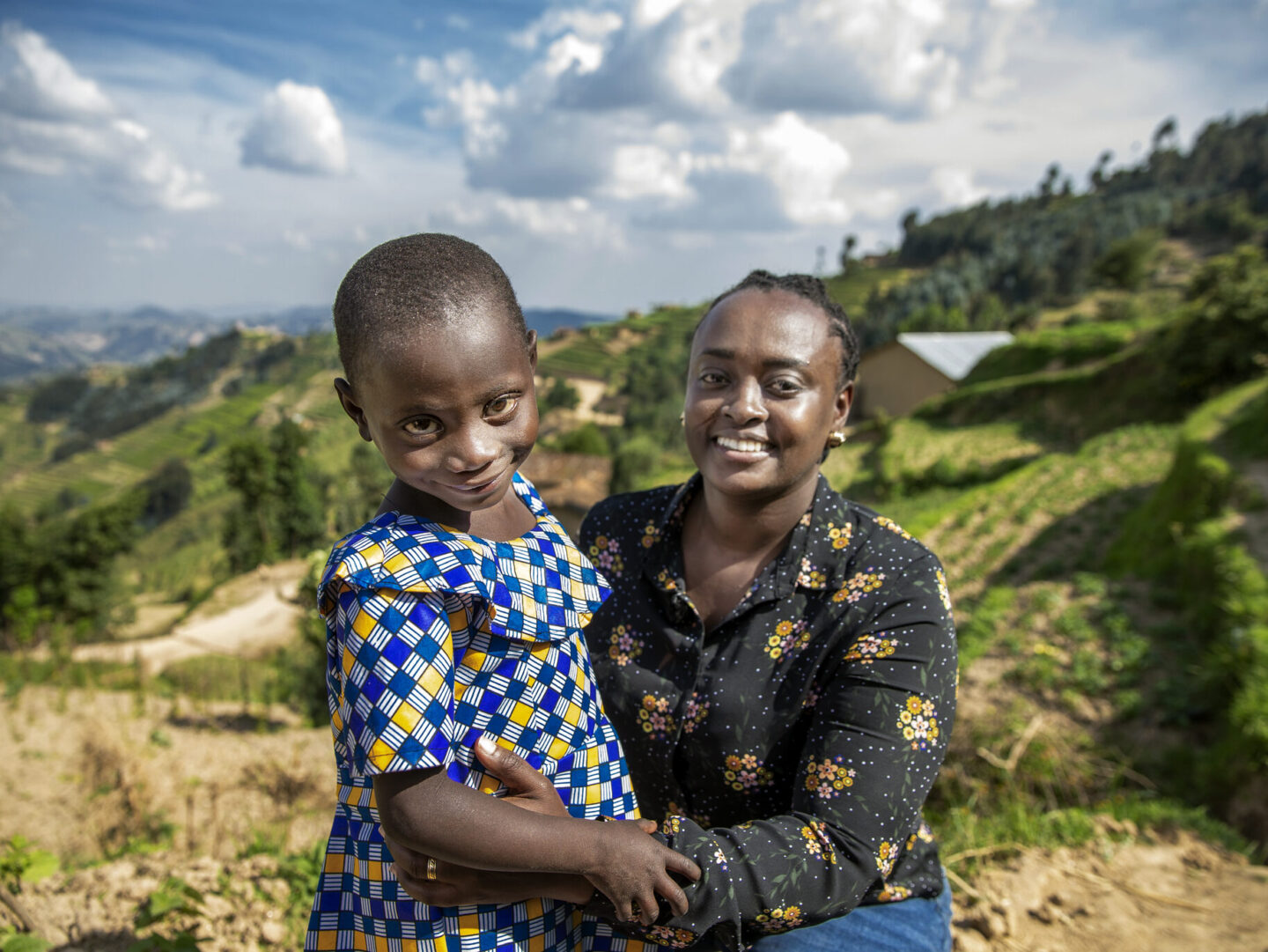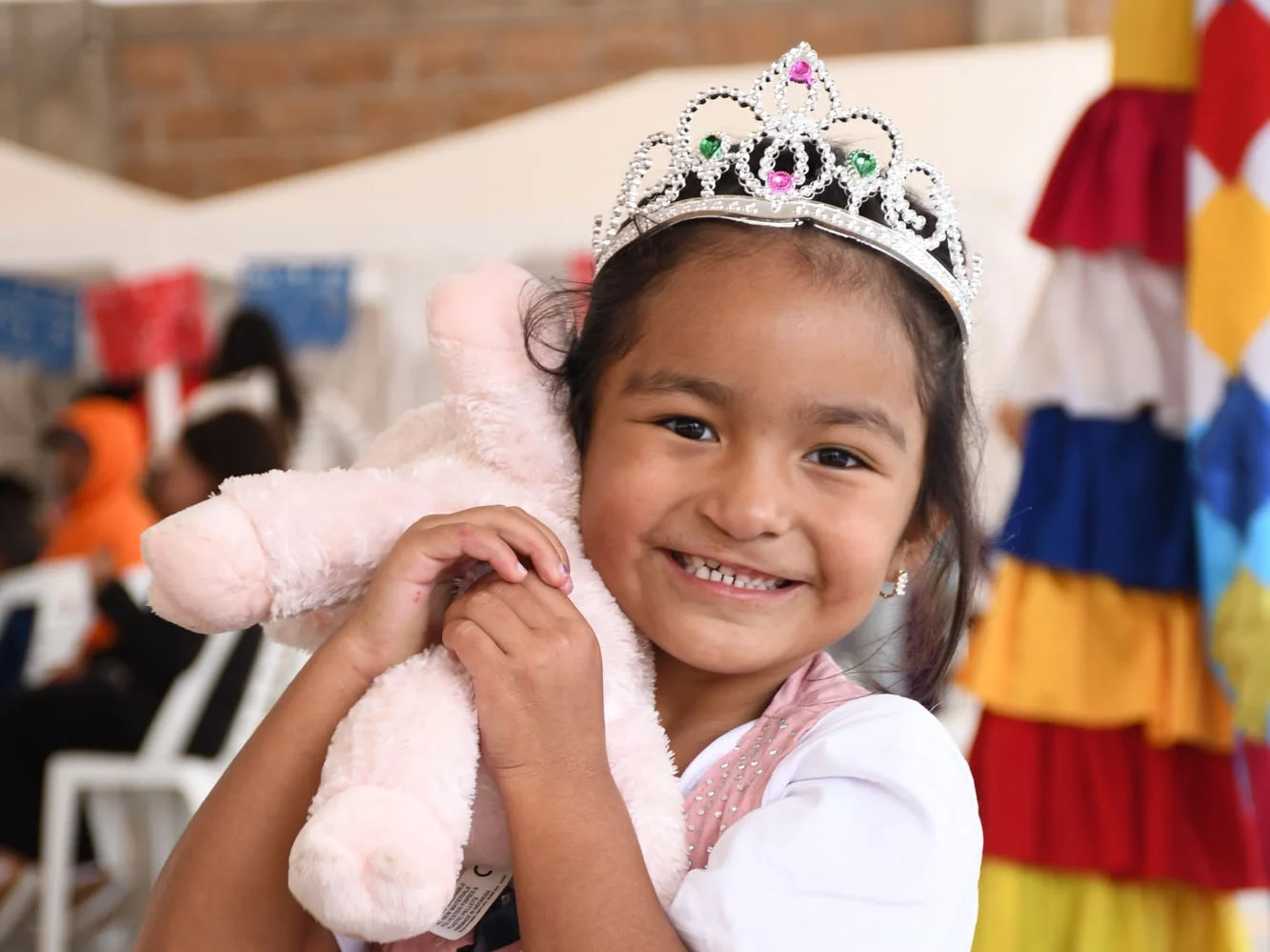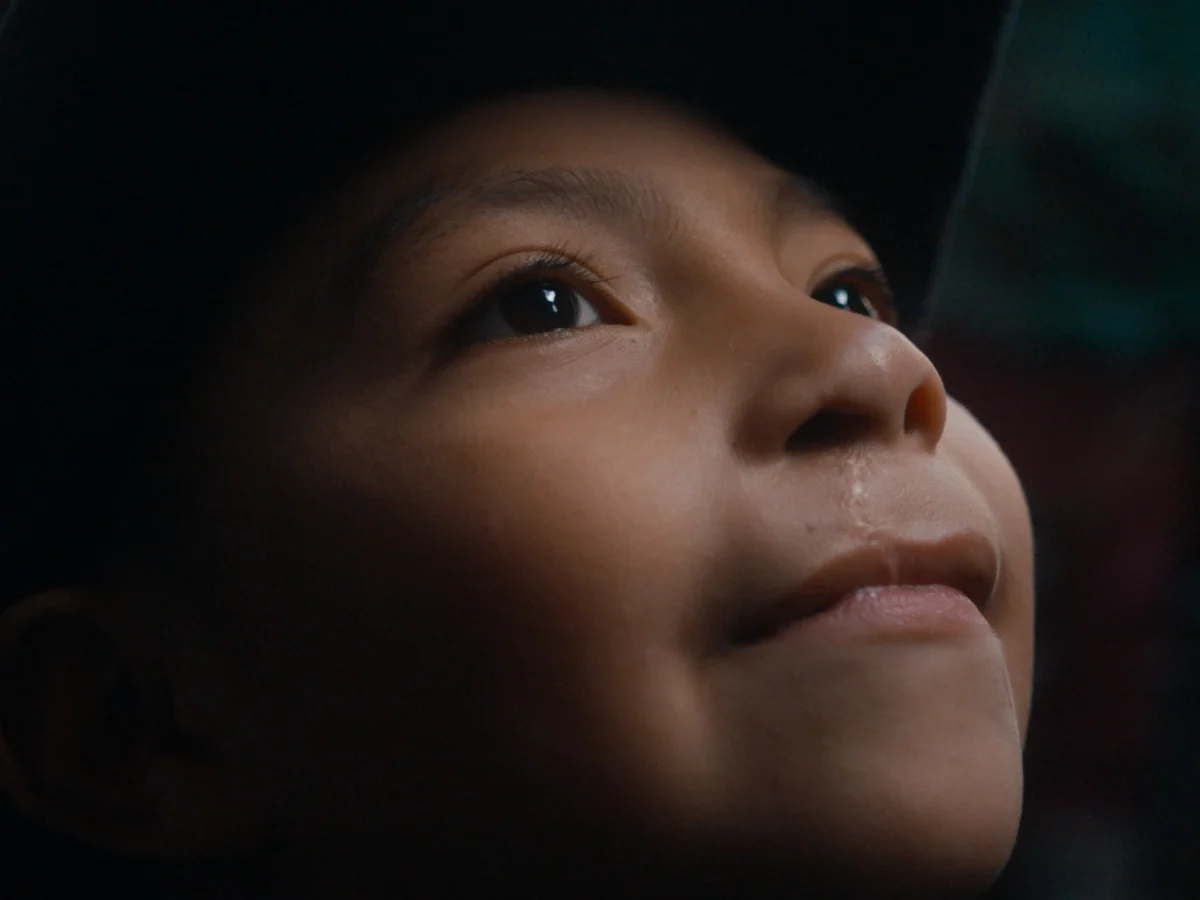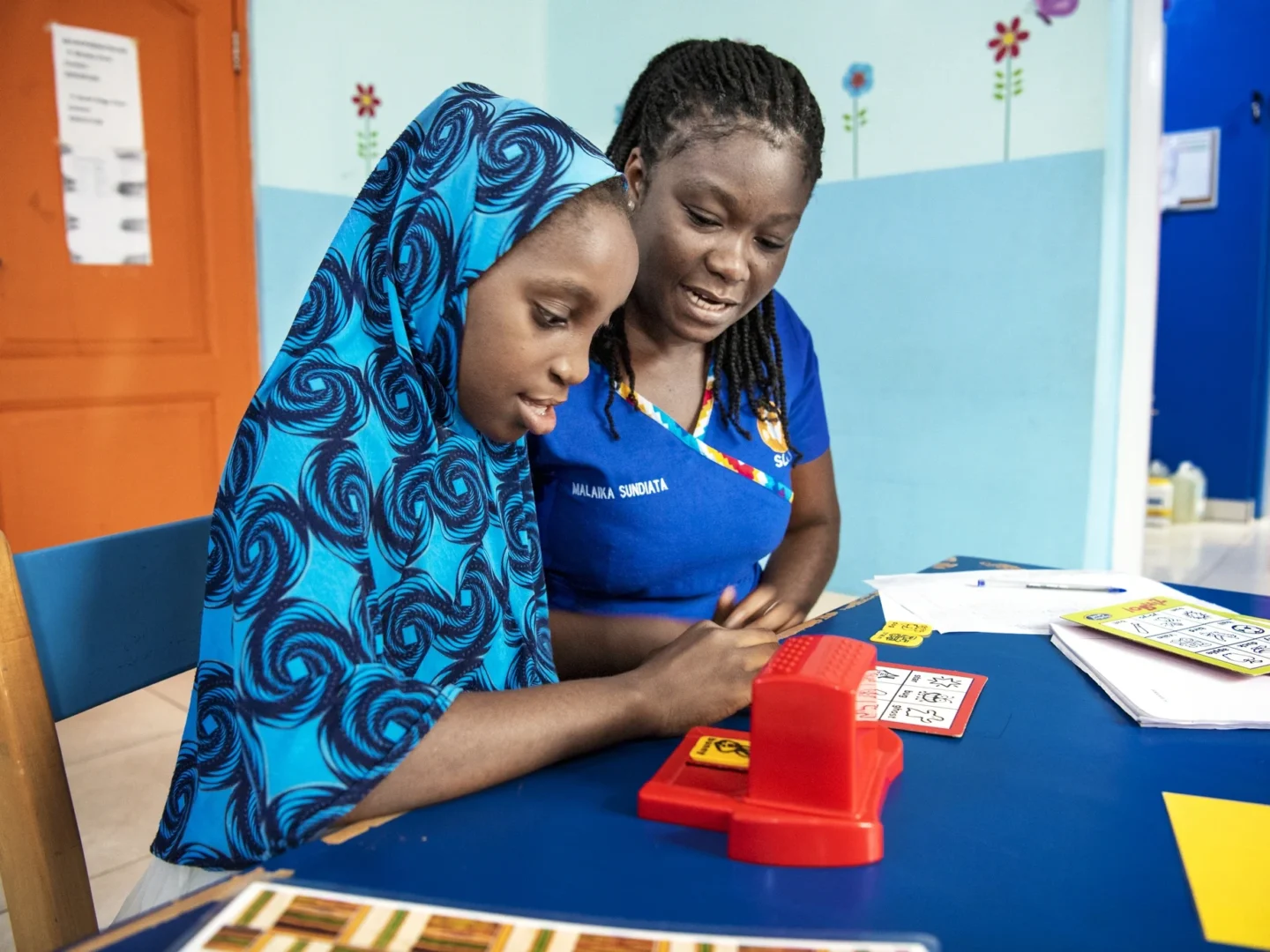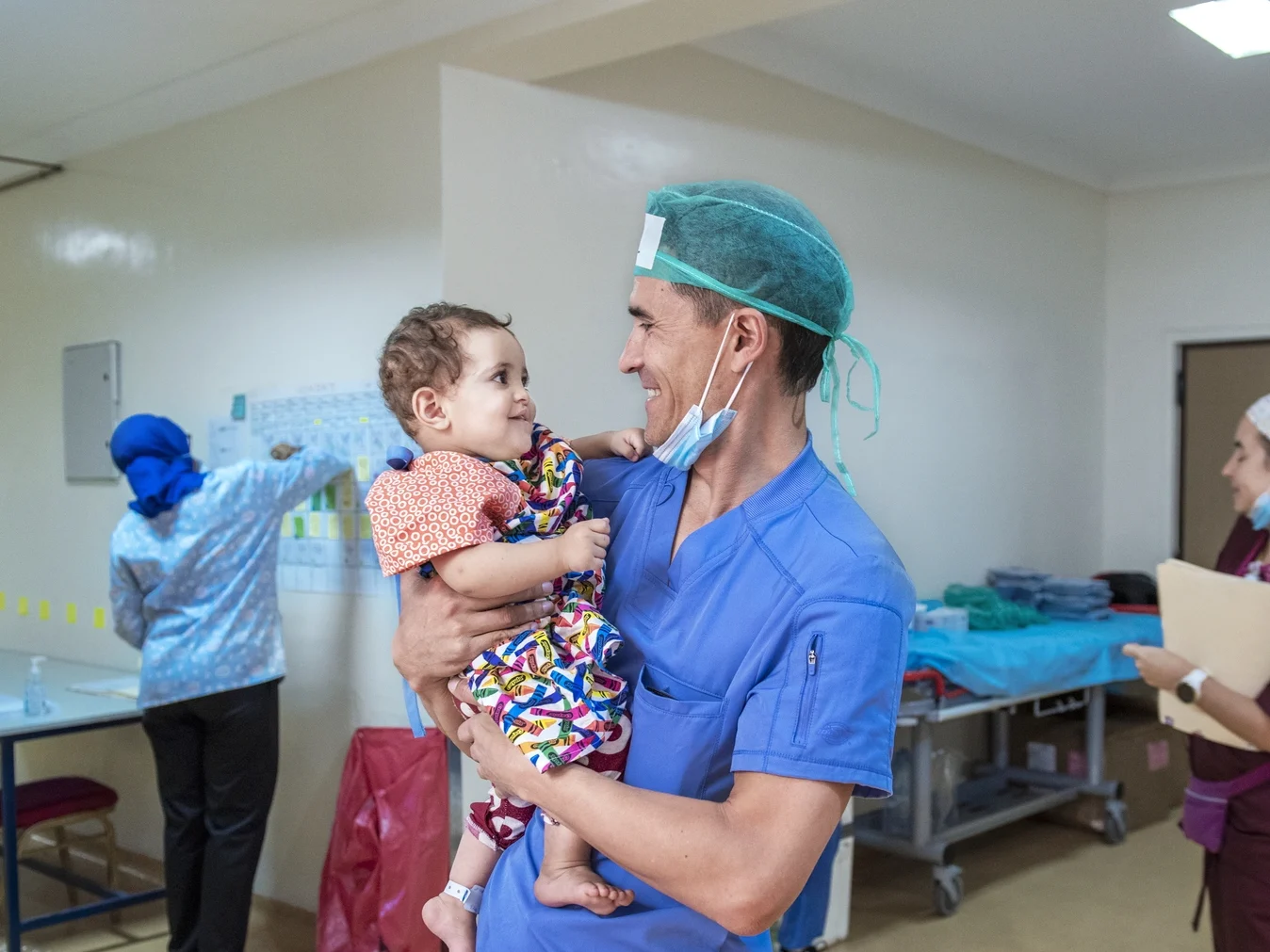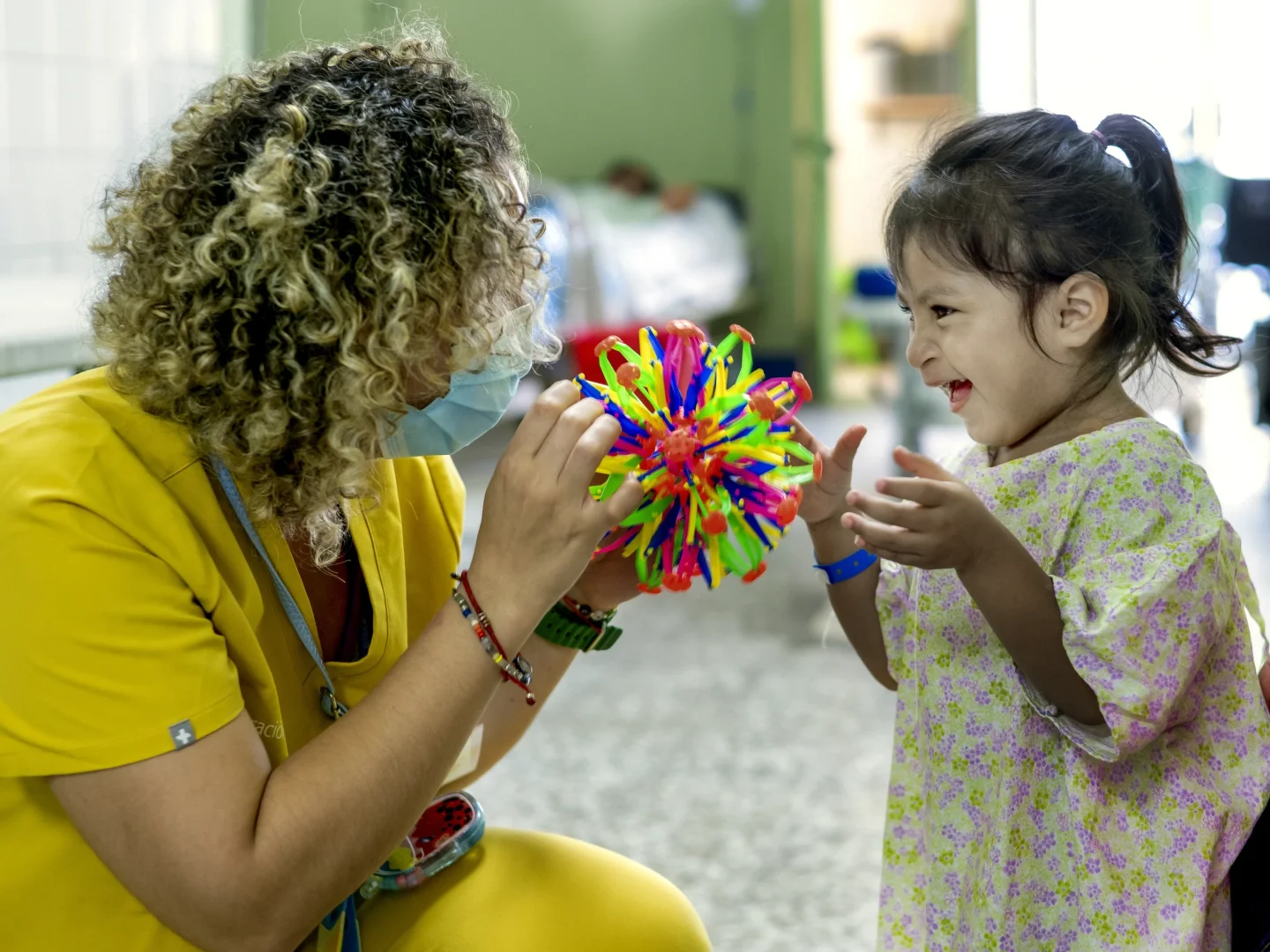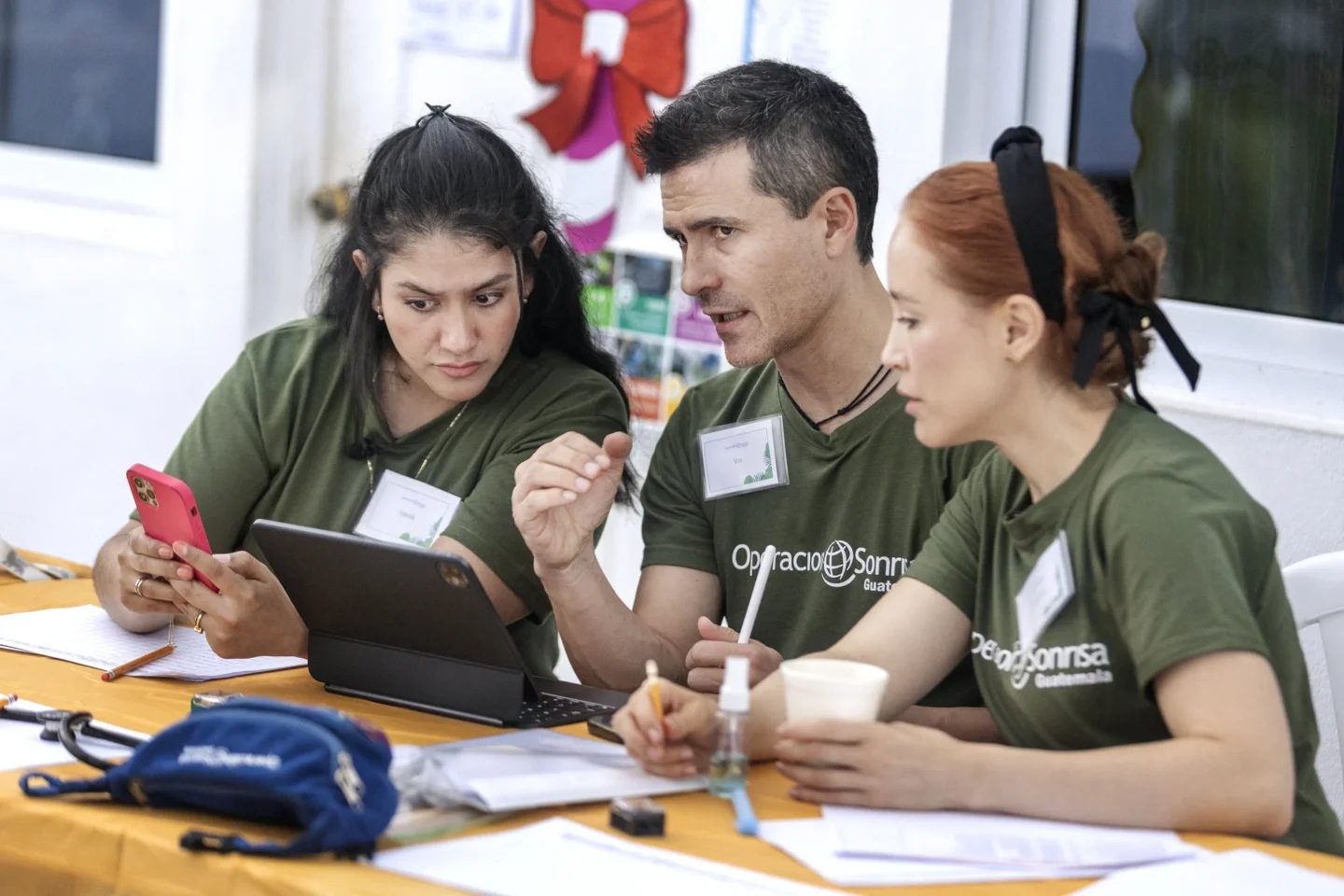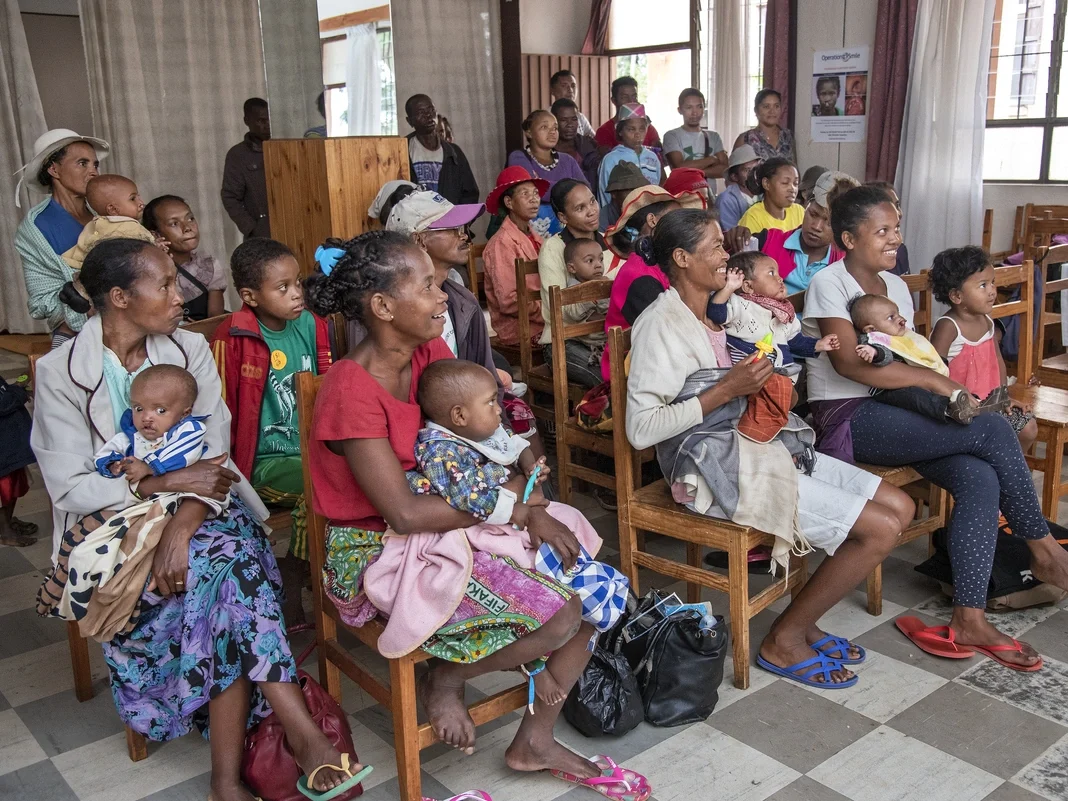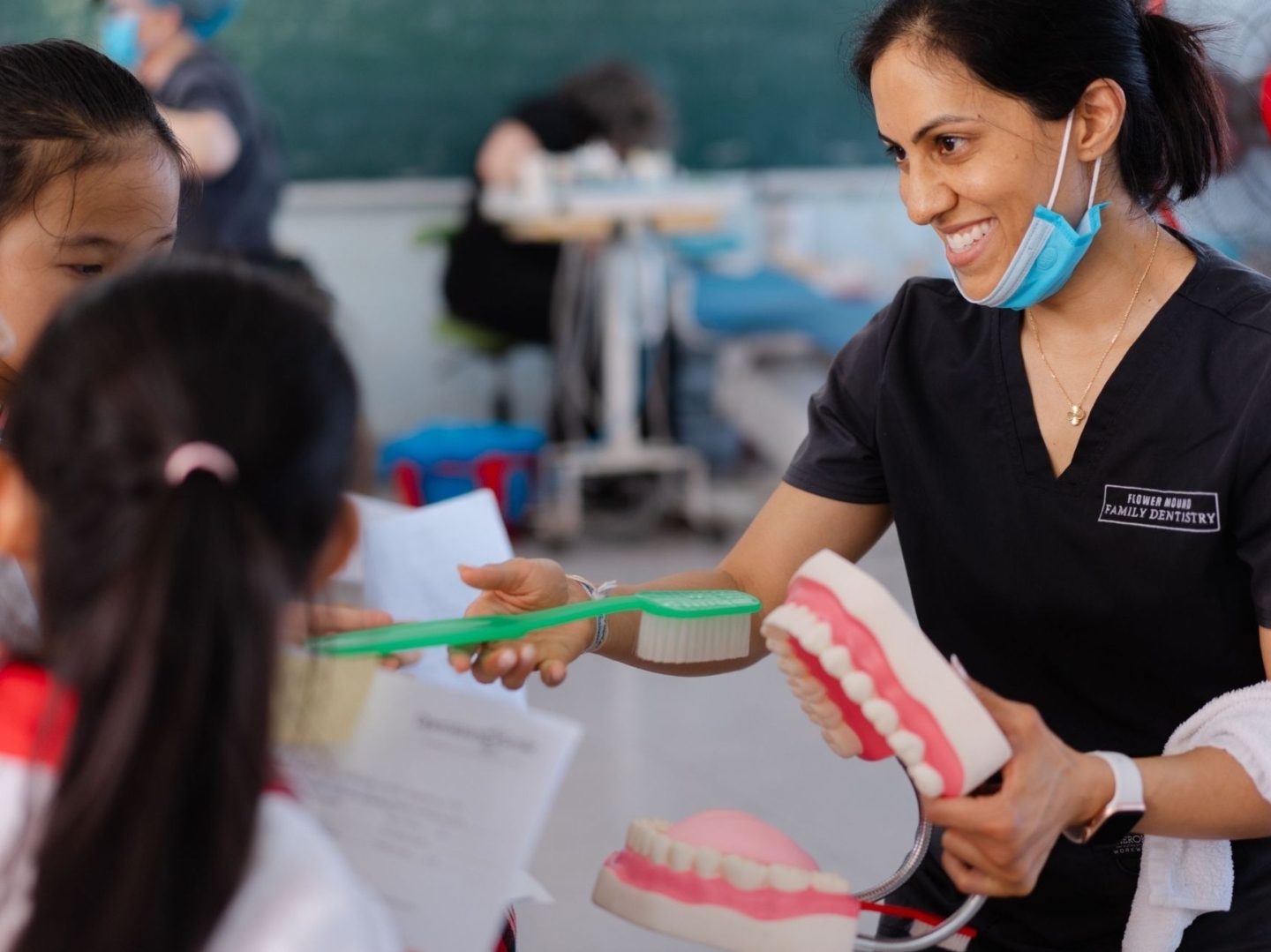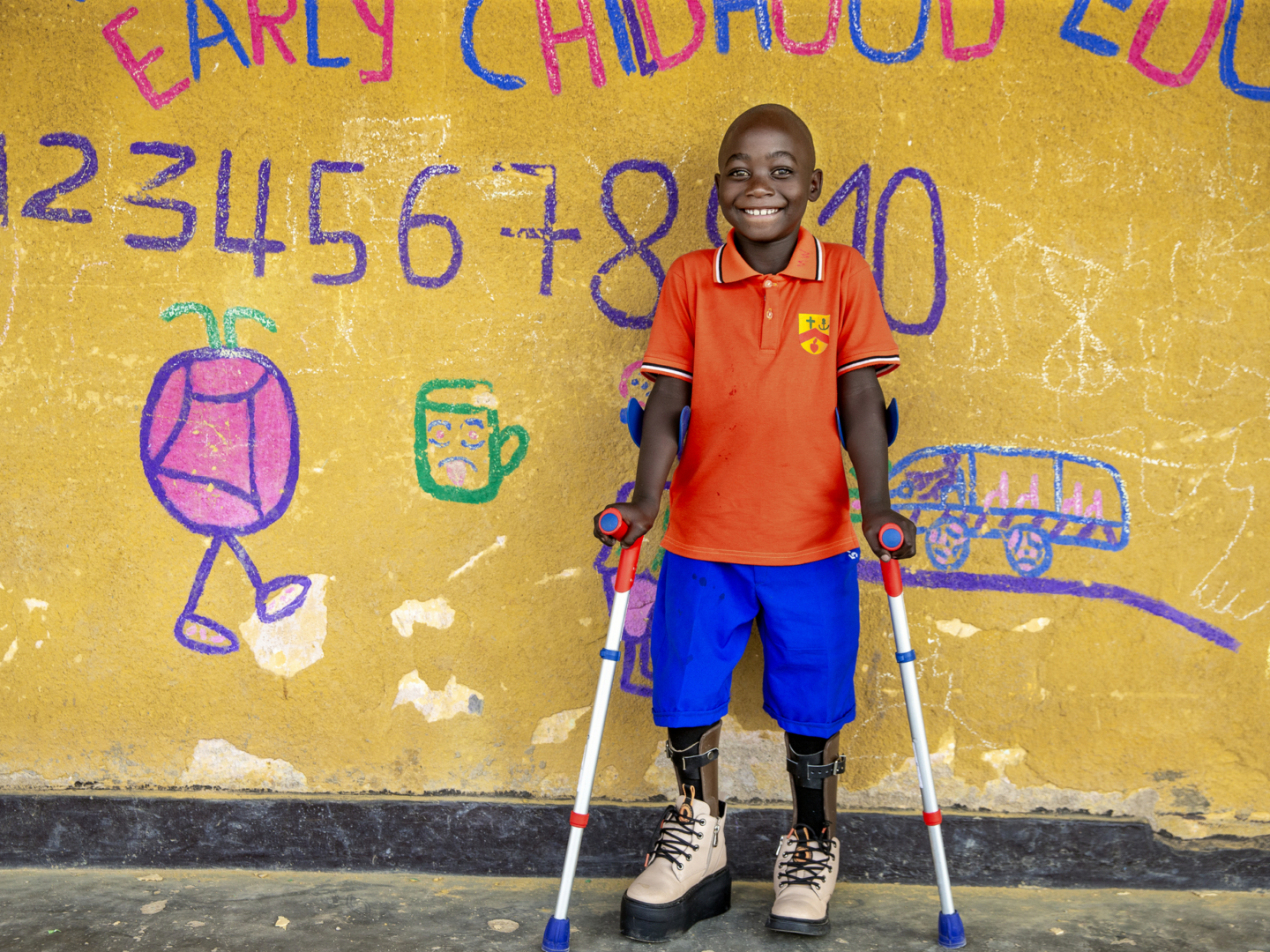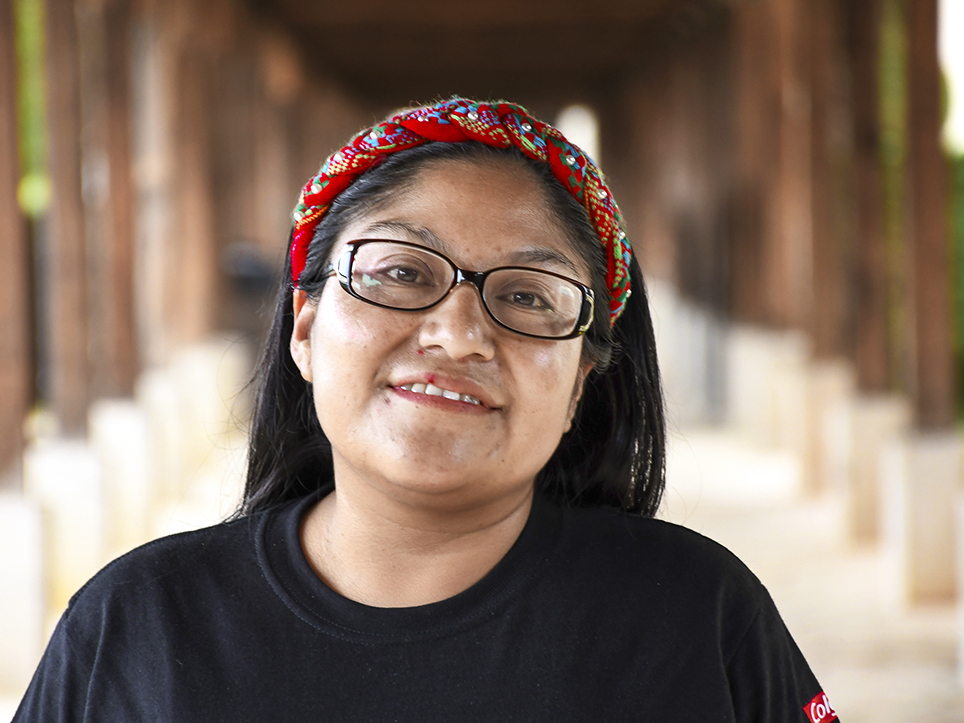Care Providers
The Opening of Operation Smile Tanzania is a Dream Realized for Augustino Hellar, M.D.
From growing up in a small village to the opening of Operation Smile in his home country, expanding access to care is what drives the regional director of east Africa.
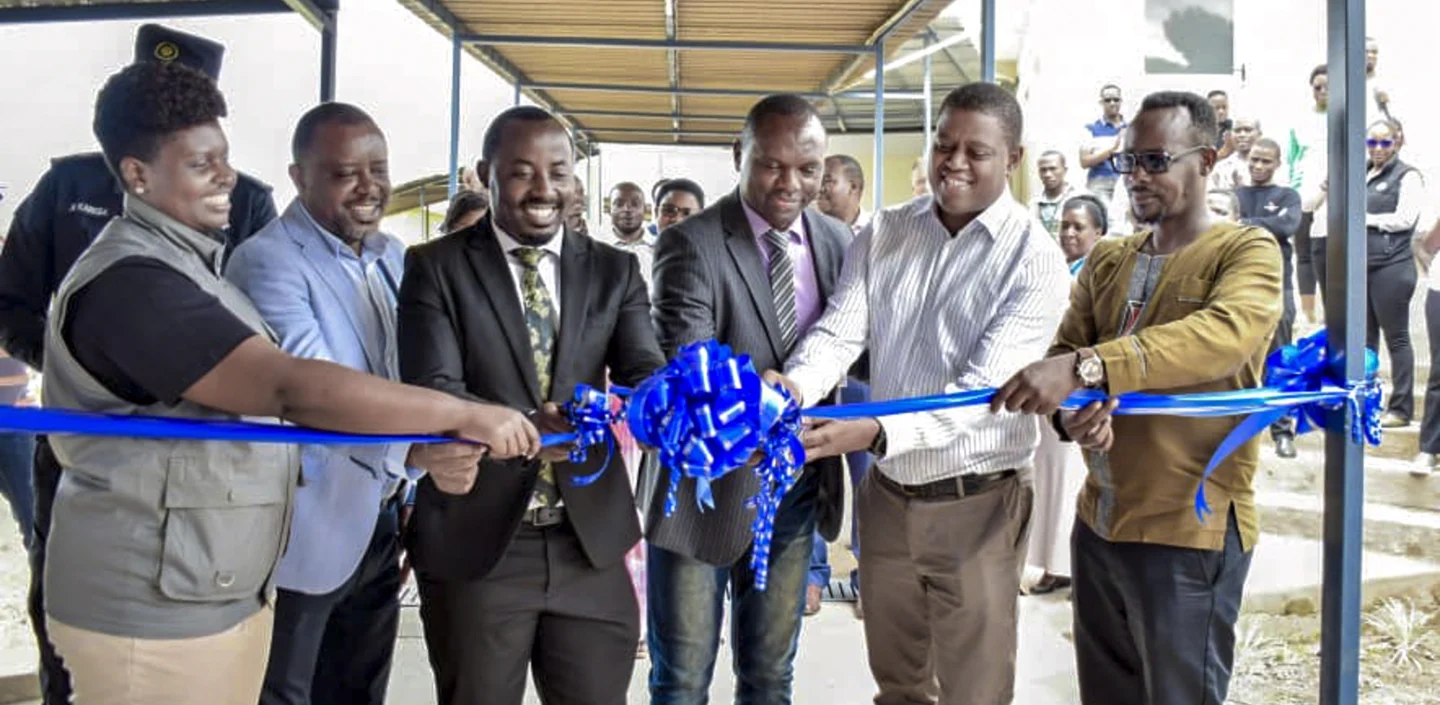
With more than 20 years of experience working in Tanzania’s health care system, and four years of working with Operation Smile, Augustino Heller, M.D., has dedicated his career to expanding access to safe, timely surgery in his home country. His passion for this work began at a young age.
As a 6-year-old, Heller suffered a severe allergy attack while visiting his mother’s home village in the Tanga region, on the coast of Tanzania. With no clinic nearby or ambulance service available, “my mother had to carry me on her back for nearly 10 kilometers to reach the closest district hospital,” he recalls. Luckily, they made it there in time for him to receive life-saving treatment immediately. “That journey could have ended very differently, and it left a deep impression on me as a child.”
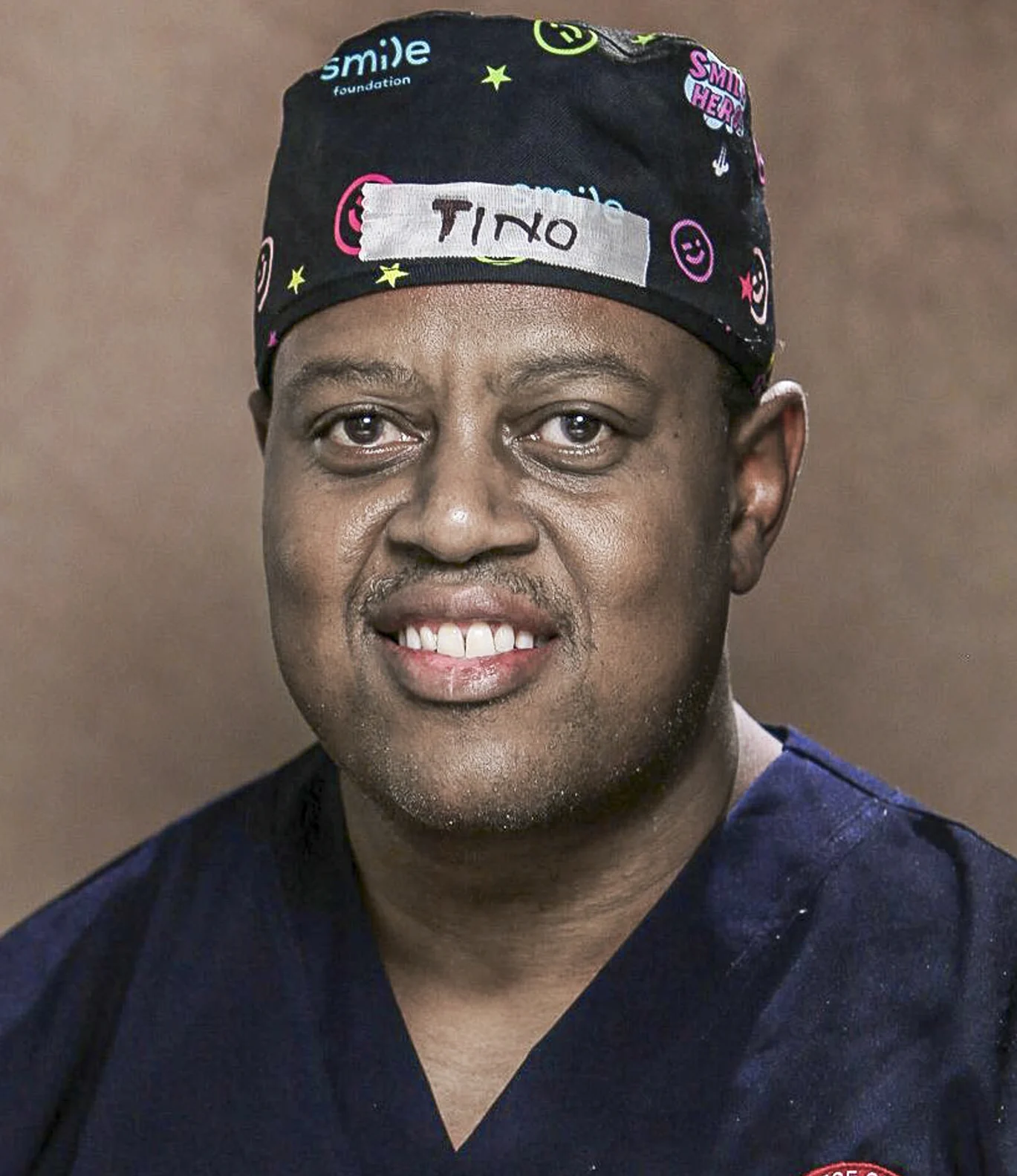
Hellar received his medical degree from Muhimbili University, in Dar es Salaam, and went on to serve in leadership roles across east and southern Africa. He is now Operation Smile’s regional director for Rwanda, Ghana and Tanzania. Most recently, he completed Operation Smile’s Cleft Surgery Training Program (CSTP), preparing him to deliver cleft care in his own country and beyond.
Operation Smile’s impact in Africa began in 1987, when it opened its first office on the continent in Kenya. Today, the organization works in 10 countries across sub-Saharan Africa. That growth was reflected earlier this year in Kigali, Rwanda, where, alongside Rwanda’s Ministry of Health, the Surgical Society and the University of Rwanda, Operation Smile convened its first Pan-African Surgical Conference. The gathering brought together academics, policymakers, global surgery experts and frontline providers to share ideas and shape practical, scalable solutions to transform surgical care across the region.
Building on that momentum and through Operation 100, Operation Smile is focused on breaking down barriers to surgical care by strengthening district hospitals and investing in frontline health workers. In Tanzania, a country renowned for its dramatic natural beauty, including Mt. Kilimanjaro and Serengeti National Park, the need to harness talent within the country and to train providers in under-resourced areas is especially great. Operation Smile Tanzania opened in 2024.
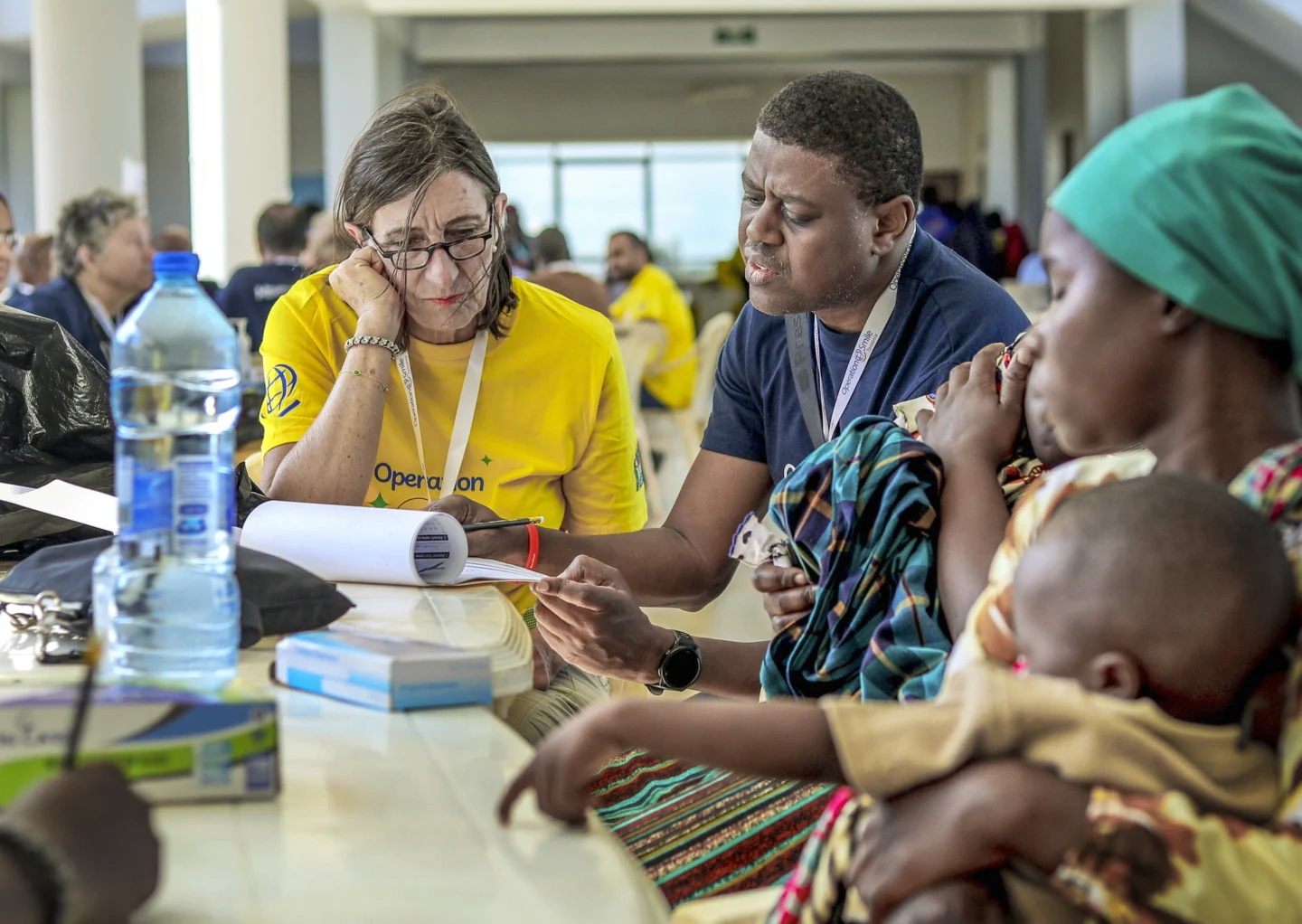
We recently spoke with Hellar about his professional journey, what the opening of Operation Smile Tanzania means to him and what he hopes the future holds for children in need of surgery in his country.
You first realized you wanted to work in health care after your own health scare as a child. How did that moment affect you?
Augustino Hellar: As I grew older and reflected on that moment, I began to understand the broader implications: I survived because I was lucky, not because the system worked. Many others in similar situations are not as fortunate. That realization inspired me to study medicine, not only to care for individuals but to change the systems that allow such preventable suffering and loss to persist.
I have felt what it’s like to be a vulnerable patient in a place where the health care system is not easily accessible. That experience gave me a personal lens on health inequities, one that continues to drive me today.
How did you become involved with Operation Smile?
AH: This is my fourth year with Operation Smile. Before joining Operation Smile, I worked at Jhpiego, an affiliate of Johns Hopkins University in the U.S., which runs programs across eastern and southern Africa. Through this work, I gained significant experience in improving surgical care and addressing critical gaps in health care delivery. This aligned closely with what Operation Smile was looking for at the time: a regional director for east Africa. When I saw the opportunity, it felt like a perfect match with my skills and experience, so I applied and was fortunate to join the team.
What does the opening of OS Tanzania mean to you personally?
AH: It’s a dream come true that we now have Operation Smile Tanzania. When I joined, I was responsible for Rwanda, Kenya, Ethiopia and Ghana. I was seeing the impact that Operation Smile was having in all these other countries, and I wished the same could happen in my country. This is deeply personal to me and I find it very rewarding.
Before the opening of OS Tanzania, what would patients there have to do to find care?
AH: Patients face many barriers in accessing care. There’s limited access to specialized services, and there are very few plastic surgeons in the country. If patients need care, they often have to travel up to 1,000 kilometers (approximately 620 miles) from a remote region in the western part of the country to Dar es Salaam. The travel costs are significant and beyond that, many families aren’t even aware that such services are available. This has been the situation for many years. That’s why I believe Operation Smile has real potential to expand access, especially if we can reach rural areas and offer services closer to where patients live.
Make Your Gift
Make your gift to support more programs in Tanzania and around the world.
Can you tell us about one specific patient or family that has been helped Operation Smile?
AH: One of the patients I remember most from a surgical program in May was a father and his son who came together for care. The father had a cleft lip, and the son had a cleft palate. They had lived their entire lives in their region with untreated cleft conditions and had suffered greatly from stigma. The boy hadn’t been able to attend school. This was impactful to me because we changed their lives. Both received surgery during our surgical program, and they were incredibly happy.
The surgery was truly remarkable. As a follow up, our patient coordinator visited their village, and we learned that the boy is now back in school. He’s happy and confident and the family has a renewed sense of hope. You can truly see the joy and relief they felt from the care they received.
Why is it crucial to provide quality surgical care to local communities?
AH: Sometimes patients suffer from very serious conditions simply because quality care isn’t available, and many of these conditions are preventable. By focusing on the delivery of quality care, we can address many preventable disabilities and also reduce both mortality and morbidity. If we ensure that surgical care, even at very rural hospitals, is of the highest quality, we significantly reduce the burden on families. At the same time, we’re building sustainable health programs that are better equipped to respond to the needs of the community.
What do you hope to see there in the future?
AH: I really want to see Operation Smile Tanzania provide more sustainable, comprehensive and accessible surgical programs across the country. We currently have two spokes, which are smaller hospitals that allow us to bring care closer to patients; we’re planning to add two more regions this year, with possibly two additional ones next year. We want to ensure that patients can access care within 75 to 100 kilometers of where they live. The goal is to bring services closer to communities while establishing more sustainable, hospital-based programs that run throughout the year.
I hope to see a future where we have a healthier Tanzania where every child with a cleft condition or another treatable surgical need can access timely, high-quality care.
